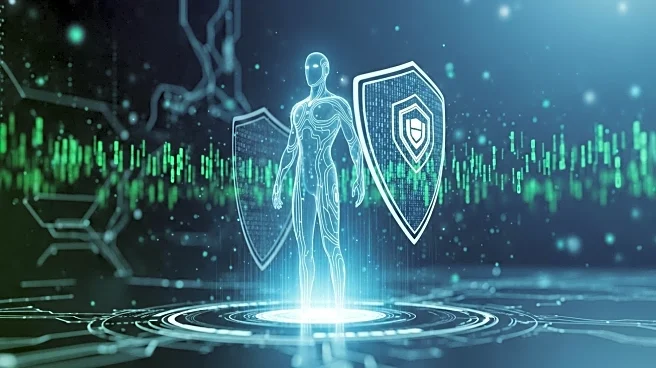What's Happening?
CrowdStrike has announced a significant advancement in cybersecurity with the introduction of AI agents at its annual conference, Fal.Con 2025. The company is shifting from traditional endpoint protection to a new model called AI Detection and Response (AIDR), which aims to intercept sophisticated cyber attacks using artificial intelligence. This development includes the creation of the Agentic Security Operations Center (SOC), where intelligent digital agents work alongside human analysts to detect and respond to threats in real-time. CrowdStrike's CEO, George Kurtz, emphasized the paradigm shift in security operations, highlighting the role of AI in reducing response times and enhancing cybersecurity measures.
Why It's Important?
The introduction of AI agents by CrowdStrike represents a transformative approach to cybersecurity, potentially setting a new standard for the industry. By leveraging AI, CrowdStrike aims to improve the speed and accuracy of threat detection and response, which is crucial in an era where cyber attacks are increasingly sophisticated and frequent. This advancement could significantly benefit businesses by providing more robust protection against data breaches and cyber threats, thereby safeguarding sensitive information and maintaining operational integrity. The move also positions CrowdStrike as a leader in the cybersecurity sector, potentially influencing industry standards and practices.
What's Next?
CrowdStrike plans to continue developing its AI-driven cybersecurity solutions, with a focus on expanding the capabilities of its Falcon platform. The company is likely to engage with businesses across various sectors to implement these advanced security measures, offering customized solutions to meet specific needs. As AI technology evolves, CrowdStrike may introduce further innovations to enhance its security offerings, potentially collaborating with other tech firms to integrate AI across broader applications. Stakeholders, including businesses and cybersecurity experts, will be closely monitoring the effectiveness of these AI agents in real-world scenarios.
Beyond the Headlines
The shift towards AI-driven cybersecurity raises important ethical and legal considerations, particularly regarding data privacy and the use of AI in decision-making processes. As AI agents become more autonomous, questions about accountability and transparency in cybersecurity operations may arise. Additionally, the integration of AI in security measures could lead to long-term changes in how businesses approach digital defense, potentially influencing regulatory frameworks and industry standards.










